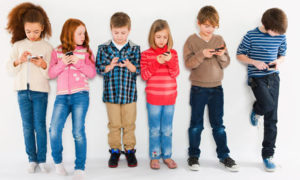 Here is a fascinating article offering a provocative new theory that the decline in drug use in the past decade is due to the rise in smartphone use. Epidemiological data has demonstrated that young people are using alcohol, marijuana, and other drugs significantly less than 10 years ago.
Here is a fascinating article offering a provocative new theory that the decline in drug use in the past decade is due to the rise in smartphone use. Epidemiological data has demonstrated that young people are using alcohol, marijuana, and other drugs significantly less than 10 years ago.
This relationship between drug and smartphone use has no empirical support at this time (it’s only correlational, not causal), but is seen as viable by many experts in the fields of technology and drug use.
This theory is based on a comparison of the similar effects of drug use and smartphones. For example, psychologically, both fulfill the needs for sensation seeking, independence, and a sense of maturity. There is also some evidence that smartphones produce the same neurochemical effects on the brain–a shot of dopamine–as do drugs (as well as other addictive behaviors such as gambling). Also, like drug use, media have a strong social component (think social media), thus fulfilling young people’s needs for connection, affiliation, and acceptance. Finally, it might be that devices are taking up so much of young people’s time and attention that they simply don’t have the time or interest to take drugs.
The key question is whether this trade-off is a good or bad thing? On the surface, the answer is that it is a very good trade-off. Certainly, there is nothing overtly harmful about too much time on devices. I would much rather have my kids looking at their phones (FYI, they don’t currently have them) than smoking pot or drinking alcohol (or worse).
At the same time, we shouldn’t be lulled into the belief that tech use is harmless. To the contrary, there is a growing body of evidence that it has broad and mostly negative implications for young people in particular (because their brains are still developing) academically, psychologically, physically, and socially (I also suggest that it has an impact athletically as well).
I’m not going to advocate completely disconnecting kids from their technology; that’s simply not going to happen. At the same time, it’s up to parents–and, ideally, young people themselves–to realize that too much use of technology, though perhaps better than drugs, is in no way a positive or healthy influence on their lives. And, as a result, parents and their children will have an open and direct conversation about how to maintain a healthy perspective about and to set reasonable limits on the use of technology in their lives.
